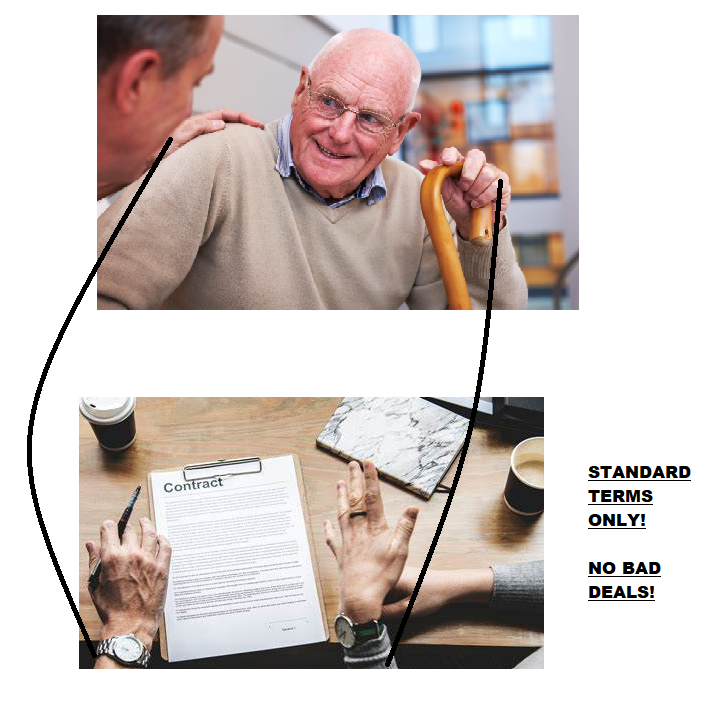Marianski v. Janet Cairns, Wife of John Cairns, and the said John Cairns for his Interest [1854] UKHL 1_Macqueen_766 (8 August 1854)
Citation:Marianski v. Janet Cairns, Wife of John Cairns, and the said John Cairns for his Interest [1854] UKHL 1_Macqueen_766 (8 August 1854)
Rule of thumb:If someone is mentally weak, can you negotiate a contract with them on terms which are grossly favourable towards you? No, where a person is weak and facile, they have more protection than people who are of a normal mind. All contracts people who are weak & facile enter into must be reasonable & general standard or else they are not enforceable.
Court held:The Court in this case affirmed the sub-principle of ‘weak and facile’ within the principle of facility and circumvention – it affirmed that in order for someone to meet the test of being weak and facile they just need to be in a fragile state and easily manipulated, and they do not actually have to have any diagnosable psychiatric condition at the time. Facility and circumvention is more based on psychology rather than psychiatry.

Ratio-decidendi:
‘The expressions “weak and facile” and “easily imposed on” are flexible terms, intended to cover cases of a very different character, and may embrace the case of a very weak old man whose intellect may not be weak, if at all impaired, but who may be easily frightened – timid and nervous from age – afraid of violence – compelled from dread, and from the desire of ease, and with the helplessness and dependence of age, to submit to the ascendancy of another, and incapable of exercising resolution so as to resist violence of temper’, Lord Justice-Clerk Hope at 1295 (quote not made but affirmed in the UKHL)
Warning: This is not professional legal advice. This is not professional legal education advice. Please obtain professional guidance before embarking on any legal course of action. This is just an interpretation of a Judgment by persons of legal insight & varying levels of legal specialism, experience & expertise. Please read the Judgment yourself and form your own interpretation of it with professional assistance.

